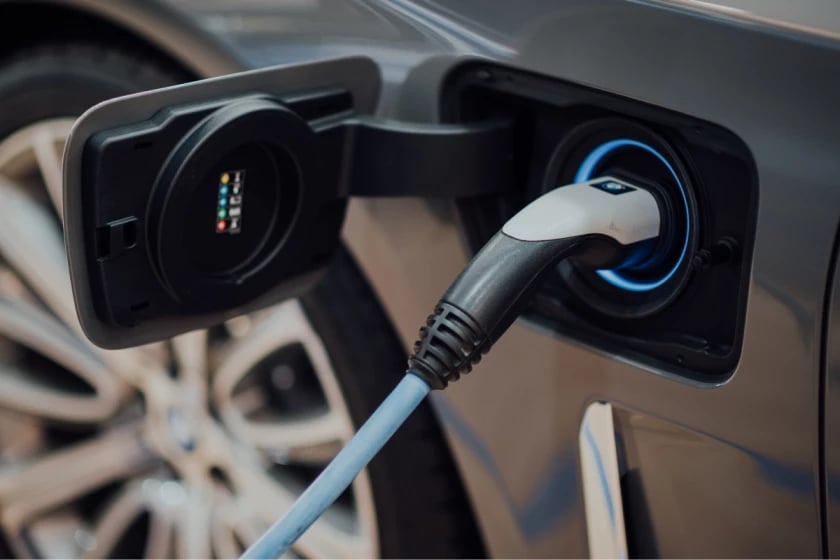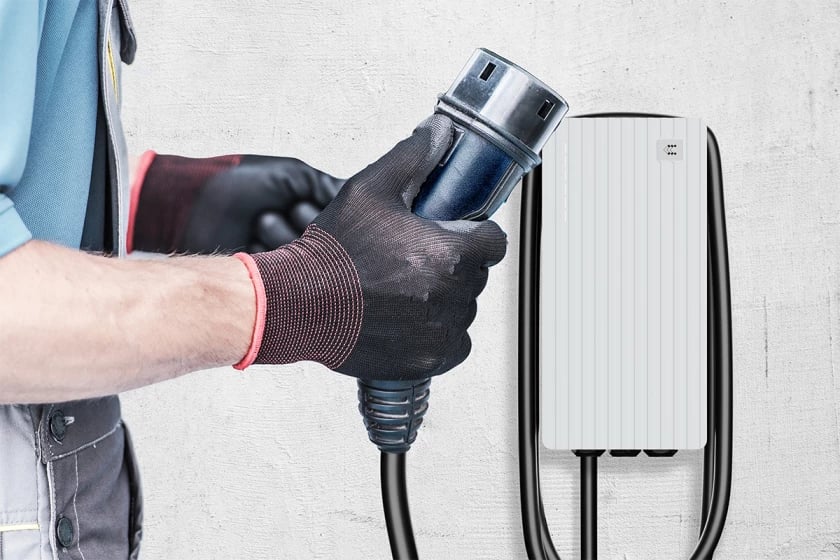EV AND EV CHARGING INCENTIVES EXPLAINED
2 years ago
If you are considering buying an EV or installing its charger at home, it is essential to understand and research which incentives are available in your area—and how much they will save you!

The rise of electric vehicles (EVs) has been nothing short of meteoric. EV sales worldwide surpassed 6,7 million units in the past year, 108 % more than in 2020. And this trend is showing no signs of slowing down.
The growth of EVs has been fueled by several factors: environmental concerns, rising fuel costs, and improved technology. All these contribute to a permanent shift away from gasoline-powered vehicles. However, no less important is that electric car owners and drivers can take advantage of various financial bonuses.
If you own an electric vehicle, there are a lot of tax breaks and other incentives available to you. Are you wondering how you can get those incentives? Sometimes it might be hard to find out which ones are available in the area where you live or work. But no worries — we will guide you through the essential terms to understand the schemes and how they work.
WHY IS AN EV A WISE INVESTMENT?
Climate change is one of the world's greatest crises. And to mitigate its effects, many ambitious and collaborative actions are needed. This is why a growing number of countries around the globe are making commitments to lower their carbon footprint. For example, the European Union aims to cut CO2 emissions from cars by 55% and vans by 50% by 2030, which means that each country meets that goal individually. In the case of the United States, a plan is to reduce greenhouse gas emissions by 50 % or more by 2030.
Usually, in the context of CO2 reduction and environment protection, we hear discussions about the importance of electric mobility and accelerating EV adoption. And for a reason. The EV industry, in particular, a wholesale switch to electric transport powered by renewable energy, is one of the primary keys to mitigating climate change and unlocking a sustainable future.
Therefore, on the road to an electric future, governments are actively looking for ways to boost interest in EVs and encourage people to purchase them. One of the most effective means here is incentivizing the use and/or purchase of EVs and/or EV chargers.
Thus, if you are considering buying an EV or installing its charger at home, it is essential to research which incentives are available in your area—and how much they will save you.
EV AND EV CHARGING INCENTIVES GLOSSARY
Electric vehicles are a growing trend worldwide, and there are many incentives designed to encourage individuals and companies to buy EVs and install EV chargers in their homes and office buildings. So let's take a deeper look at how these incentives work.
The concept of EV and EV charger incentives is quite simple: rebate and tax credit are two key terms you need to know when it comes to EVs. The government incentivizes the purchase of an electric vehicle by offering these. Firstly, it is a great way to get more people and companies into EVs, and, secondly, it helps governments meet their carbon emissions reduction goals and create a healthier environment.

Tax credits help offset the cost of buying an electric vehicle by reducing taxes on purchases or providing tax breaks on new cars and trucks purchased after 2010. Tax credits vary from country to country but typically range from €2,000-7,000 per vehicle. You can get credits until they expire or are used up—which means they may disappear over time if no new purchases happen while they are available.
A rebate is another way to get some of your money back when purchasing an electric vehicle or installing an EV charger in your home—and it is much easier to qualify for than a tax credit. The rebate amount varies depending on many factors, but it will typically cover up to 10-20% of the cost of your purchase or installation fee, so if you spend €1,200 installing an EV charger in your home, for example, then a part of that amount will be reimbursed by the government after installation is complete.
But that is not all. In fact, there are also several tax incentives available, for example, in the EU for people who buy electric vehicles. These incentives include reduced road tax (up to 20% reduction), registration tax (up to 10% reduction), vehicle license fee (up to 25% reduction), and no annual road tax or vehicle license fee on electric cars purchased before 1 January 2022.
SOME OF THE BEST EXAMPLES IN EUROPE
Now you know basically everything about EV incentives. But how does it work? Let's take a look at some examples.
For instance, Germany has been offering incentives on electric vehicles since 2011 and now is seeking a goal of having 10 million EVs and 1 million EV charging stations by 2030. In Germany, for battery electric vehicles (BEVs) or plug-in hybrids with an electric range of at least 40 km, you can get a rebate from €5,625 to €9,000, depending on the list price. Furthermore, a fixed subsidy of €900 is available for everyone interested in purchasing an EV charger for private use.

The Netherlands has also been promoting EVs since 2011. Their program provides rebates and tax incentives for both new purchases and used cars. A rebate for the new EV today equals €4,000 and for the used €2,000. In addition, zero-emissions vehicles are exempt from registration and road taxes. Businesses also pay reduced tax, which equals 12% rather than the usual 22%.
Luxembourg is considered amongst the top 14 EV markets in Europe and provides subsidies ranging from €2,500 to €5,000 for zero-emissions vehicles (BEV and FCEV) and PHEVs with CO2 emissions below 50g/kg. Companies in Luxembourg that use EVs or other vehicles with zero or low emissions can take the opportunity to deduct expenses related to it from corporate income.
France is another country putting lots of effort into electrification. A grant of up to €7,000 is available for vehicles emitting 20g CO2/km or less. However, there is a significantly lower bonus for plug-in hybrid cars emitting between 21g – 50g CO2/km, which equals €2,000. It is important to note that France is providing its citizens with a conversion bonus: of up to €5,000 for purchasing second-hand or new BEVs and PHEVs if they get rid of their old vehicles.
Share it with friends!
We’re here to help!